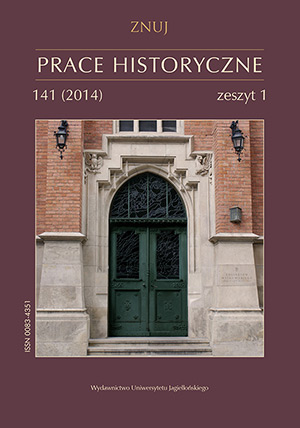Czesi w Galicji Wschodniej w XIX wieku: społeczeństwo, gospodarka, kultura
The Czechs In East Galicia In The 19th Century: Society, Economics, Culture
Author(s): Petr KaletaSubject(s): History
Published by: Wydawnictwo Uniwersytetu Jagiellońskiego
Keywords: East Galicia; Czechs; 19th century; society; economics' culture
Summary/Abstract: Czech society in East Galicia in the 19th century was represented primarily by bureaucrats, but also by military officers and many other professions who settled there, such as entrepreneurs and craftsmen. Soon, however, the (often true) stereotype of the self-confident Czech bureaucrat was formed, above all in Polish society, a stereotype of the diligent Austrian citizen, for whom the national activities of Polish society were foreign and with whom it was not possible to discuss Slavic cooperation. The center of Czech national and cultural life was the group of bureaucrats and teachers who gathered in an informal circle, the chair of which was František Jáchym, in Lviv. For the 19th century, we do not have exact information on the number of Czechs living in Galicia – the available statistics provide the numbers of predominant ethnicities, which is why we can base our estimates on the data on the languages used in 1900, when 9,014 Czech-speakers were registered. Together with the teachers, the bureaucratic class played a decisive role in the maintenance of Czech national and cultural traditions. Galicia was popularized most strikingly by Karel Vladislav Zap, the author of the book Trips and Walks through the Galician Land (Prague 1844), who worked as a bureaucrat there for nine years. Czech agricultural workers also made up a significant group. František Řehoř, who was known for his ethnographic research on the local Rusyn community, also came to Galicia as a part of the agricultural migration. The field in which many Czechs in Galicia gained recognition was music. Czechs were employed there as private music teachers, as members of municipal music groups and theater orchestras, as musicians in cafes and also as music teachers, conductors and members of theater philharmonics. The Česká beseda in Lviv, which had 300 members in 1914, became the center of cultural and social life of the Czechs in East Galicia beginning in 1867.
Journal: Prace Historyczne
- Issue Year: 141/2014
- Issue No: 1
- Page Range: 61-75
- Page Count: 15
- Language: Polish

